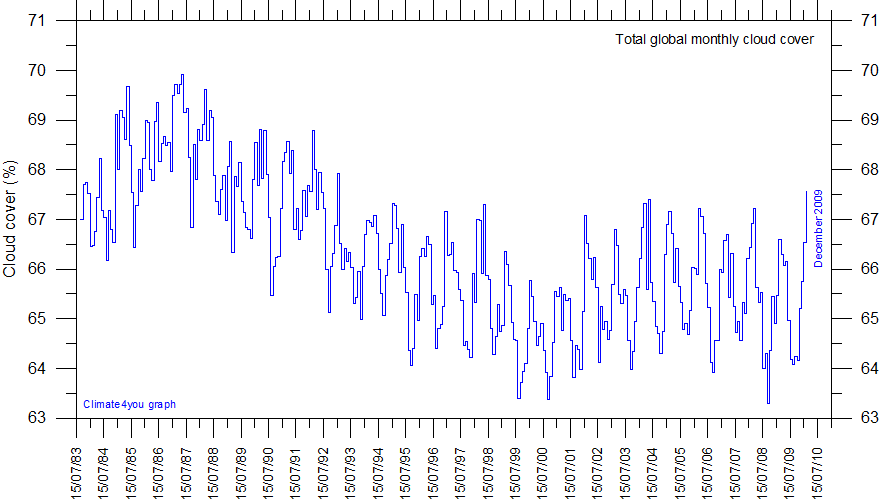Jim D | December 17, 2014 at 12:48 am |
Barnes, yes, as PA says, it ends up being the H2O that is important. H2O largely responds to the surface temperature via equilibrium thermodynamics, another area of basic physics. So first you get warming by CO2 then the H2O response, which gives you the total effect. Arrhenius understood this much around 1900.
Arrhenius took his lumps in the Gravito-Thermal discussion thread.
The Tropical Tropopause Layer (TTL) is cooling, the stratosphere is drying, the TLT (temperature lower troposphere) trend seems warmer measured from the ground than the basically flat trend of the first couple of kilometers measured from space. Since balloons and satellites show the same trend – the bulk of the lower troposphere isn’t getting warmer.
The kicker is cloud cover:
CloudCoverTotalObservationsSince1983.gif
Clouds alone would explain the vast majority of the last 30 years.
Hard to say whether CO2 is driving this, the new temperature regime, natural ripples in global climate or all three or something else. Until we can sort out the effects and attribute cause about all you can say is more CO2 ought to make things very near the ground a little warmer mostly at night.
















